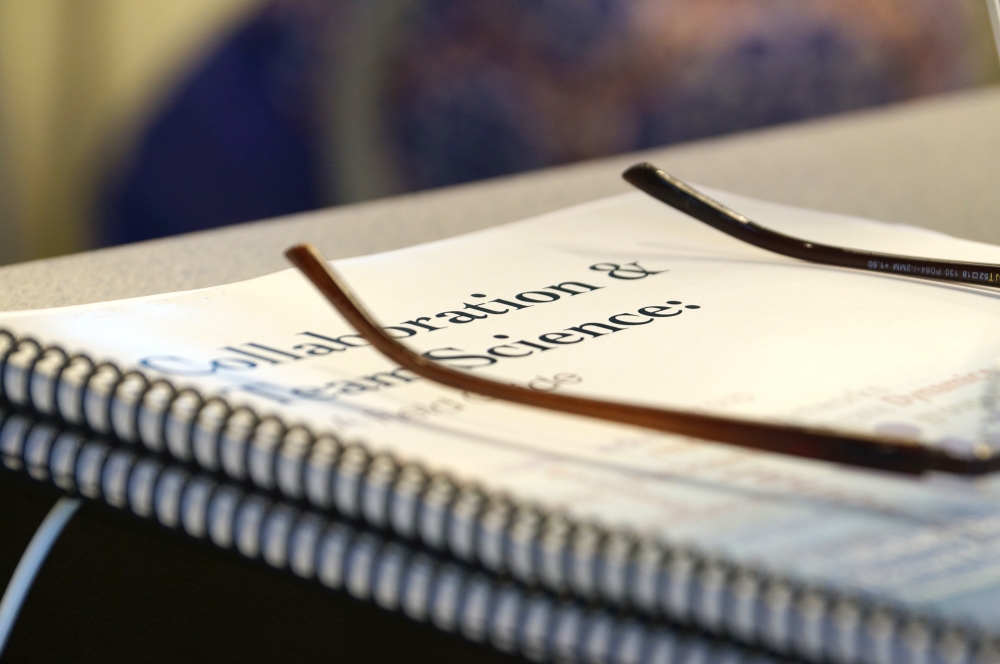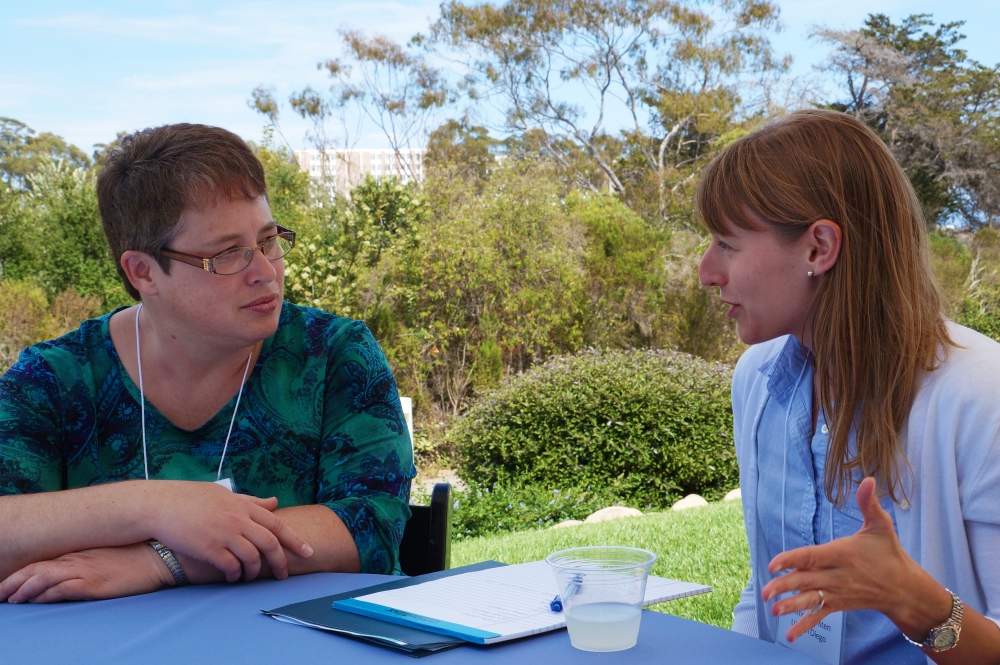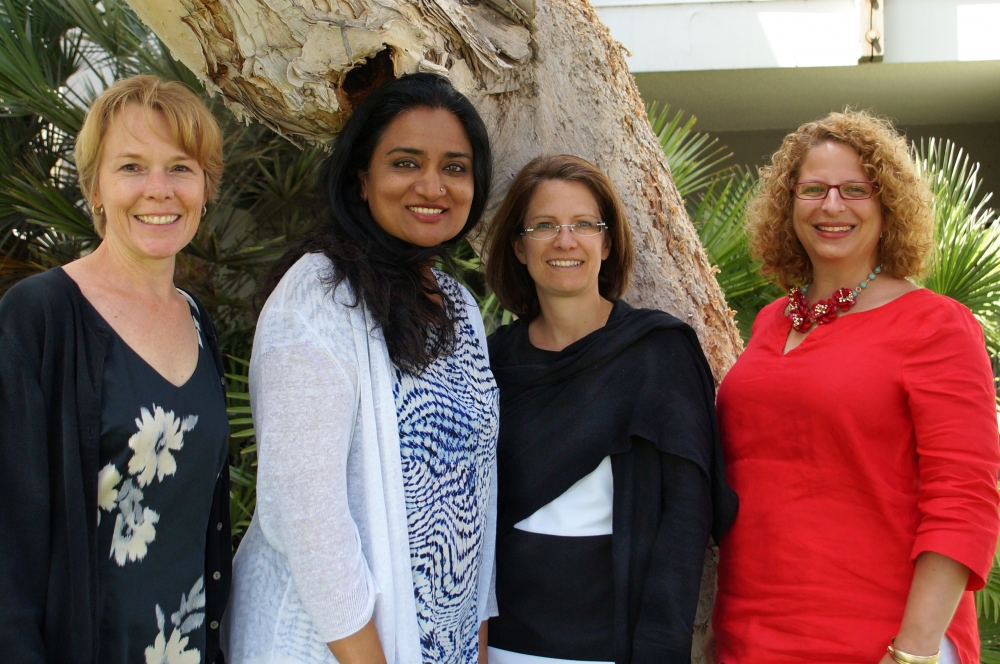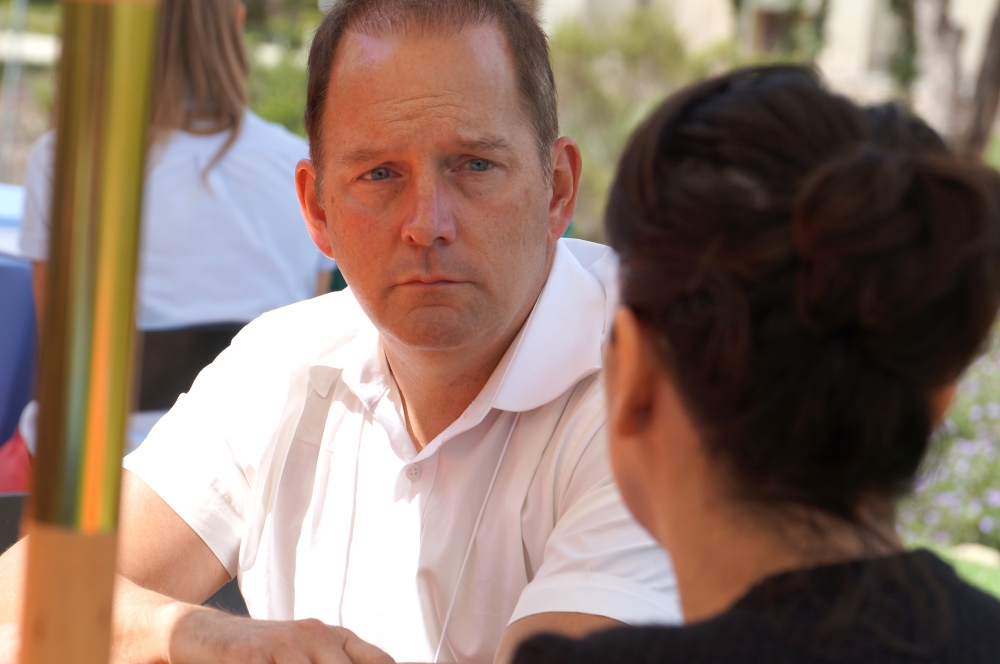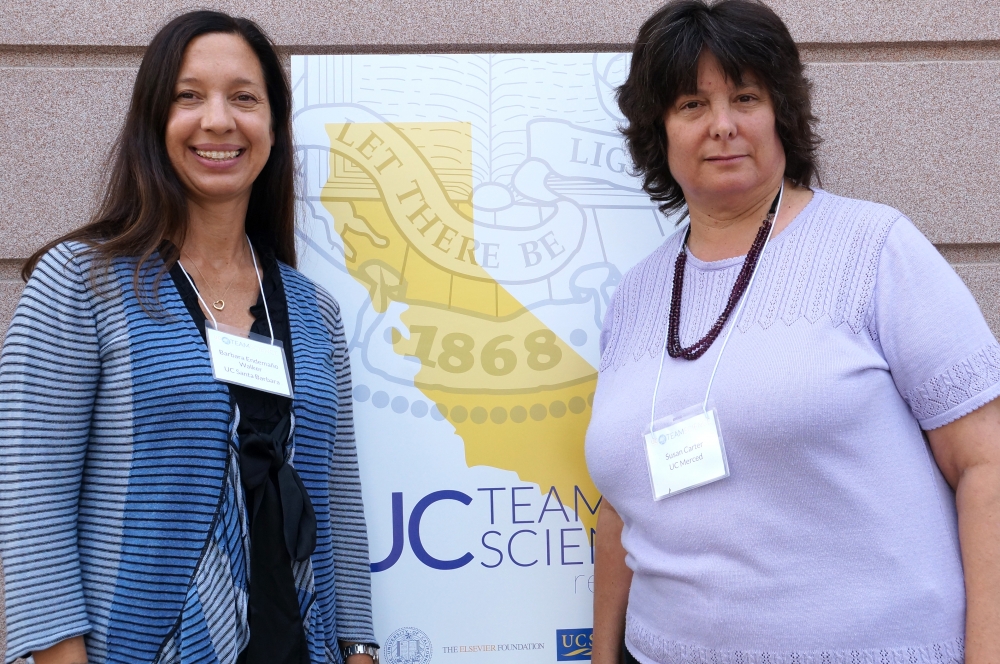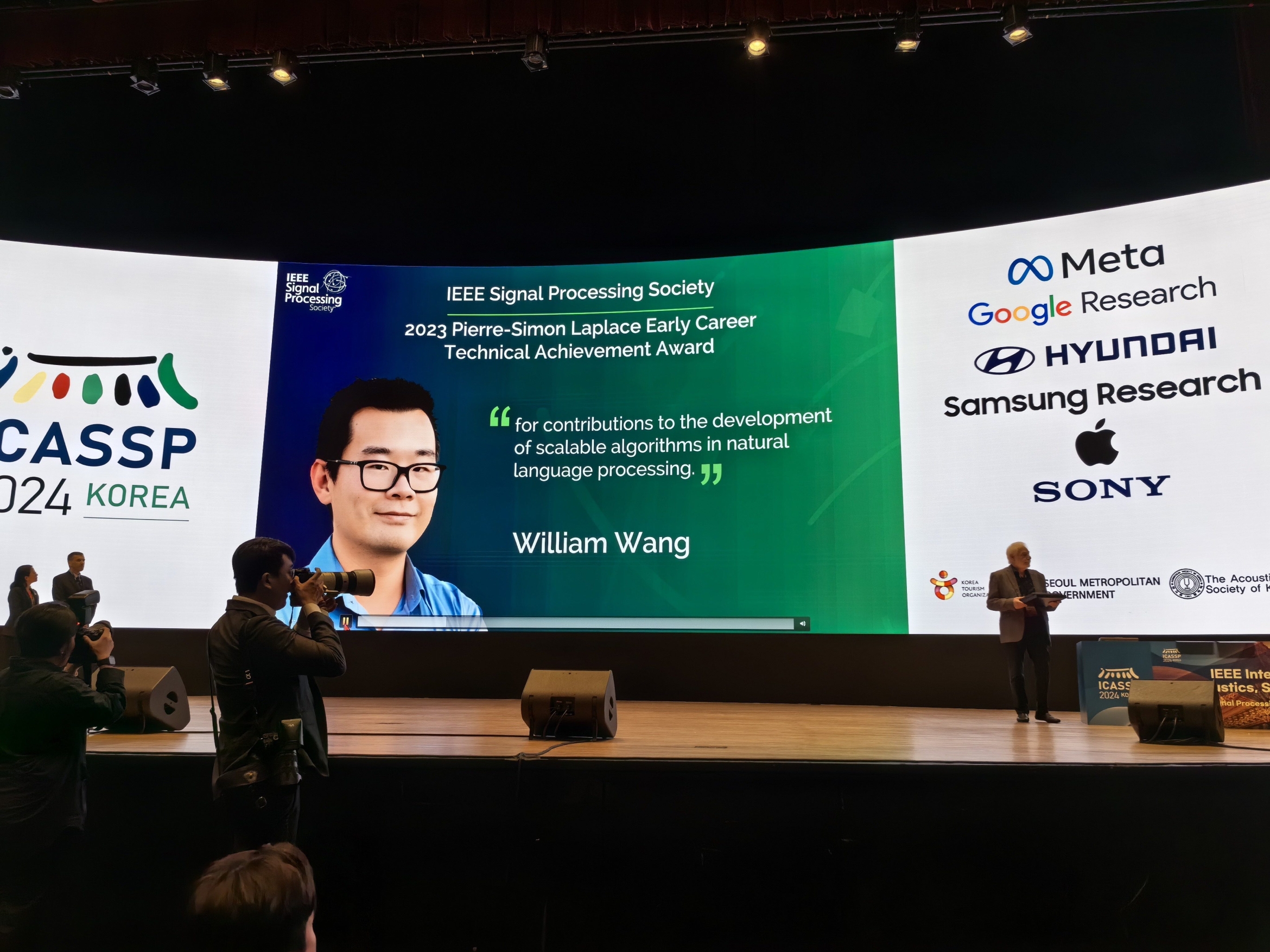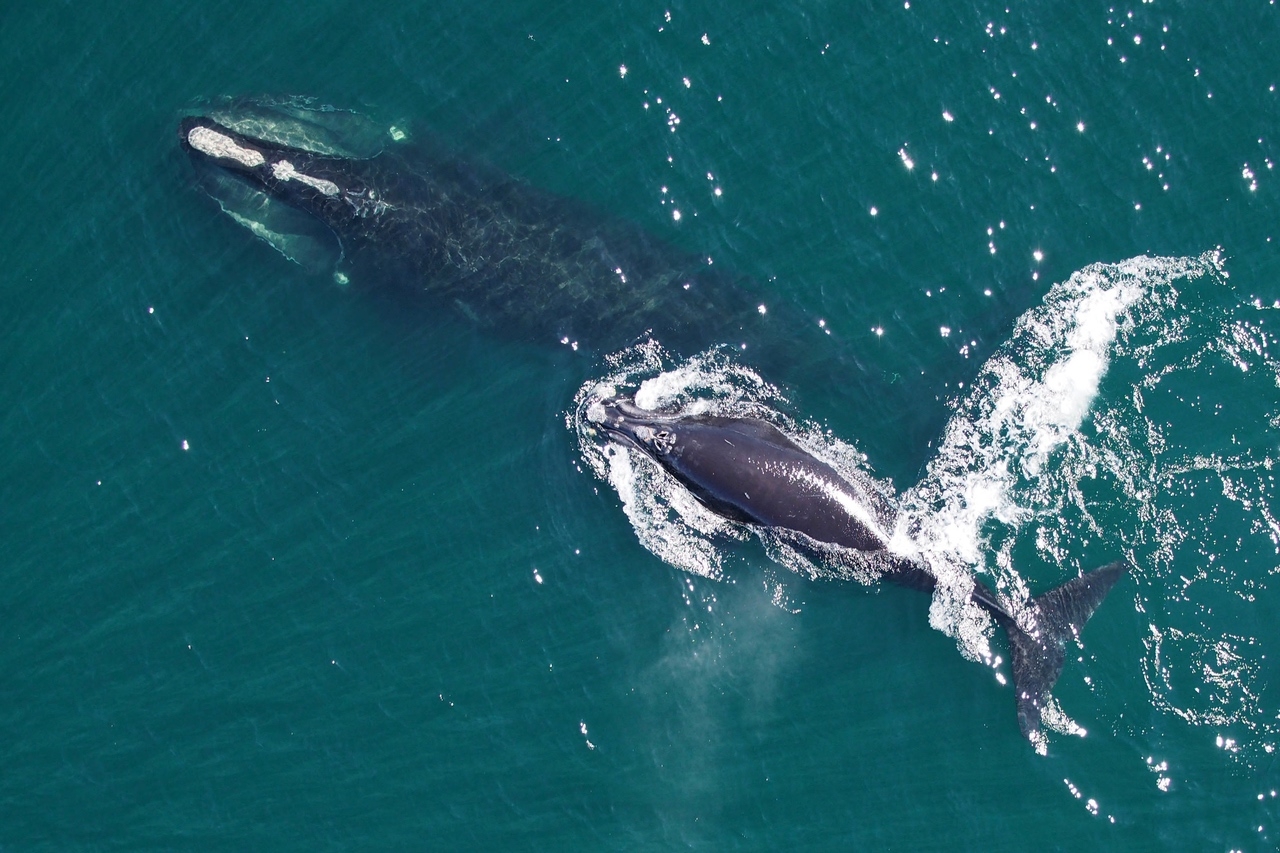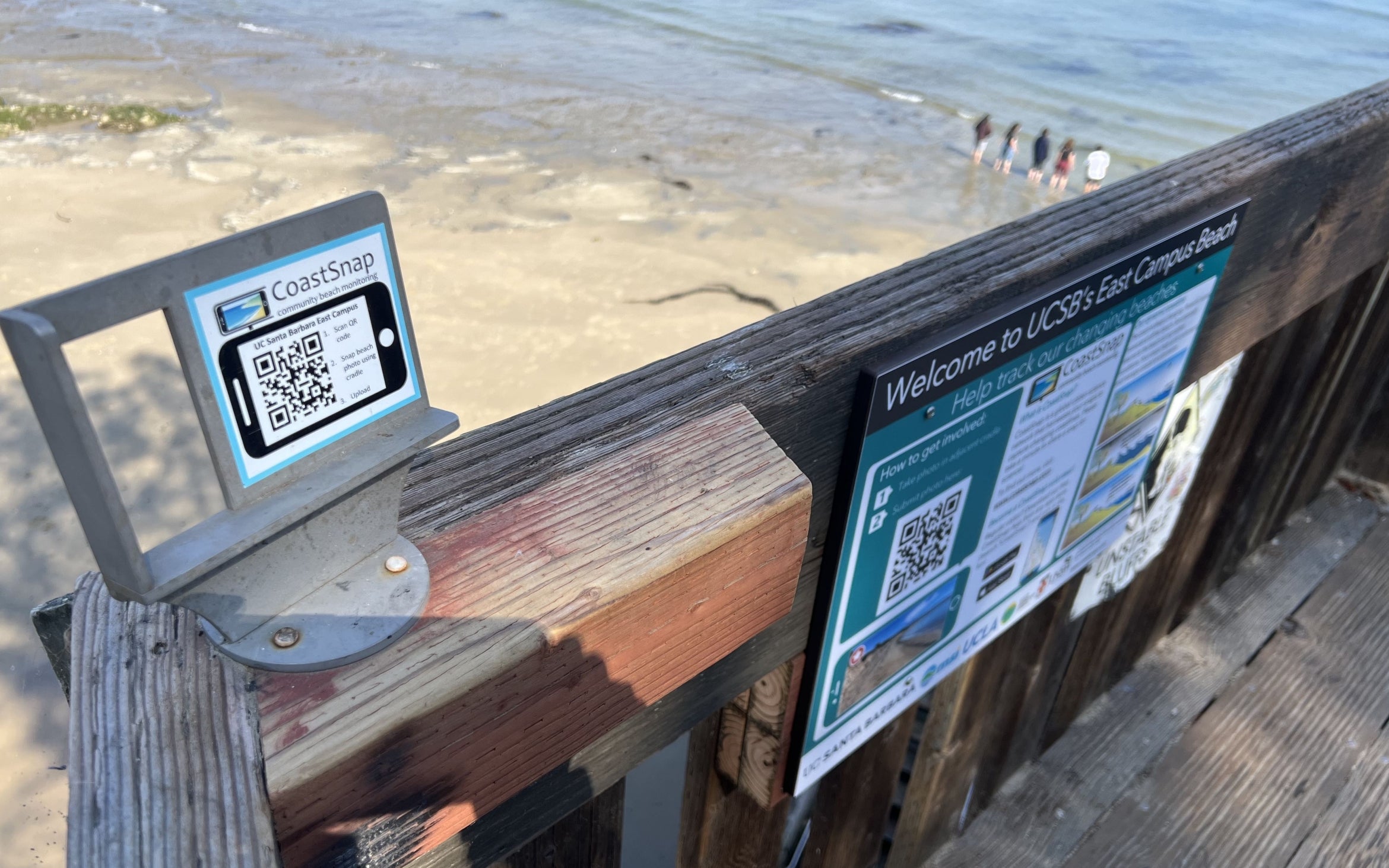The Science of Team Science
Team science — collaborative, interdisciplinary research — has become increasingly central in scientific discovery. Early- to mid-career faculty members and postdoctoral scholars from nine of the 10 University of California campuses spent three days at UC Santa Barbara attending the first Team Science Retreat, which concluded today.
“Many important research challenges can be addressed properly only by a large, diverse team of researchers working closely together,” said the Vice Chancellor for Research Michael Witherell, who addressed attendees Saturday evening.
The retreat featured training to develop the capacity for team science as well as the leadership and management skills necessary to be an effective team leader and member. Presenters discussed the challenges and benefits of diverse scientific teams and offered strategies for recruiting team diversity and increasing women’s participation and leadership roles in team science. In addition, participants learned about team management best practices and diversity and inclusion issues related to research productivity and recognition.
“I was very interested in the methods for implementing team science because I’m involved in collaborations; they are so great in theory but so hard in practice,” said Yelena Bronevetsky, a postdoctoral scholar in UC San Francisco’s Ansel Lab, which studies gene expression in the immune system. “I’m hoping to utilize some of what I’ve learned here to improve my collaborative experiences.”
Also participating in the three-day workshop were representatives from the National Institutes of Health (NIH), the National Cancer Institute, the National Science Foundation (NSF) and Elsevier, whose charitable foundation funded the three-year UC Team Science Retreat program. They shared insights from funding agency perspectives as well as tips and resources for improving both the dynamics and communication of team science research groups.
“We are committed to doing at least two more Team Science Retreats based on the funding that we have right now,” said the Director of Research Development for the Social Sciences, Humanities and Fine Arts in the Office of Research, Barbara Walker, who organized the first retreat. “One participant called the retreat life-changing,” she said.
“There is an increased demand for team science initiatives in academia and by external funding agencies,” said Elsevier’s Vice President, Global Academic & Research Relations, Holly Falk-Krzesinski. “Coordination costs mean that team science takes more time, at least proximally, but there is a distal payoff in terms of acceleration.”
According to social scientists studying the components of team science, communication and leadership are key factors in successful research collaborations. In fact, L. Michelle Bennett, deputy scientific director of the Division of Intramural Research at the NIH’s National Heart, Lung and Blood Institute, focused her presentation on communication, trust and conflict in team science.
She co-authored “Collaboration & Team Science: A Field Guide,” which provides conflict resolution strategies and shares elements that contribute to successful team functioning. “It’s the differences that actually drive the innovation and creativity,” she said.
Social scientist Aparna Joshi, an associate professor of management and organization at Pennsylvania State University’s Smeal College of Business, spoke about the importance of diversity in collaborative research groups. Joshi’s research shows that diversity is specific to the context and means different things in different settings. “Increasing gender diversity results in innovation,” she said.
According to Randy Phelps, a staff associate in the NSF’s Office of International and Integrative Activities, it is imperative for scientific researchers to develop new skill sets. “Project management is critically important,” he said. “Investigator proposals benefit from a demonstration of project management skills. Team science demands it.”
Presenters reviewed academic literature that documents the fact that team research is typically more highly cited than research done by individuals and that women who do not collaborate are less productive. One discussion during the retreat focused on academic and government culture and ways of improving opportunities for team science on both an individual and institutional basis.
“We and every other university are trying to identify outstanding scientists who also have the ability to form a large group of scientists into a productive team,” said UCSB’s Witherell. “We are trying to help UC scientists develop these skills early in their careers so they are able to lead successful proposals for big centers.”
“This experience will really make a difference for the participants, and I hope that others on UC campuses will want to get involved in future Team Science Retreats,” said co-organizer Susan Carter, director of research development services in UC Merced’s Office of Research and Economic Development.
